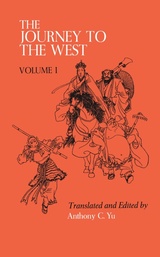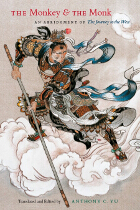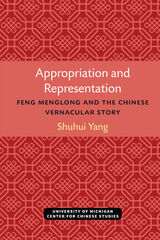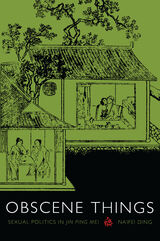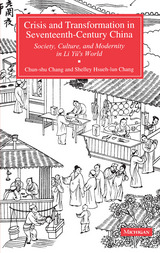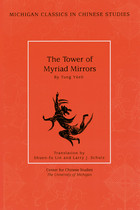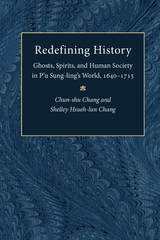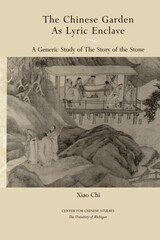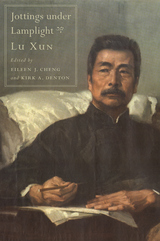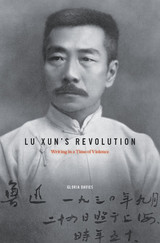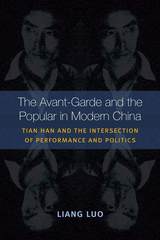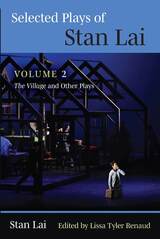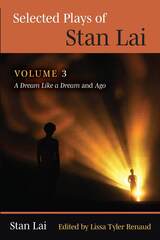The Chinese Garden as Lyric Enclave: A Generic Study of The Story of the Stone
University of Michigan Press, 2012
Paper: 978-0-89264-907-5 | Cloth: 978-0-89264-148-2
Library of Congress Classification PL2727.S2X53 2001
Dewey Decimal Classification 895.1348
Paper: 978-0-89264-907-5 | Cloth: 978-0-89264-148-2
Library of Congress Classification PL2727.S2X53 2001
Dewey Decimal Classification 895.1348
ABOUT THIS BOOK | AUTHOR BIOGRAPHY | REQUEST ACCESSIBLE FILE
ABOUT THIS BOOK
Lyricism in poetry dominated the Chinese literary tradition for three millenia. Lyric aesthetics captured the world in verse, and compelled people to seek the totalistic behind the contingent, the abiding behind the fluid, and the perfect behind the incomplete. The development of the novel and the cultural milieu that produced it, however, rendered this lyric ideal more prosaic, both in everyday life and in literature.
The Chinese Garden as Lyric Enclave places The Story of the Stone in relation to this history. Read as an allegory of the fate of lyricism, The Stone is a parodic response to both the lyrical phenomena in the literary and social worlds and the cosmological beliefs on which Chinese lyricism is based. Thus we can trace the social life of lyricism through different cultural zones: the world where the novel was produced, the world of fiction, and the narrative universe of the story itself. The garden, in both the novel and cultural tradition, is a link between all three zones.
Chi Xiao breaks new ground in understanding The Story of the Stone, blending his extensive knowledge of traditional Chinese fiction with a remarkably crafted history of the garden as an enduring feature of elite Chinese life. By focusing on the role of the garden in The Stone, Xiao Chi reveals the special linkages between the world of fiction, the world that produced the novel, and the narrative universe of the story itself.
See other books on: approximately 1717-1763 | Cao, Xueqin | Chinese | Gardens in literature | Stone
See other titles from University of Michigan Press

